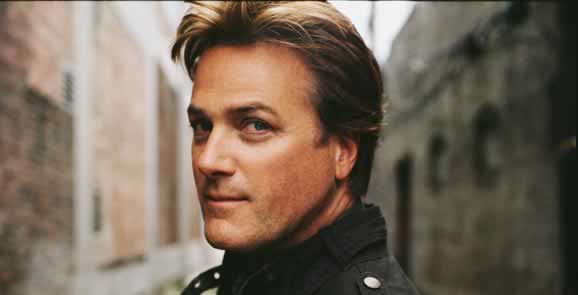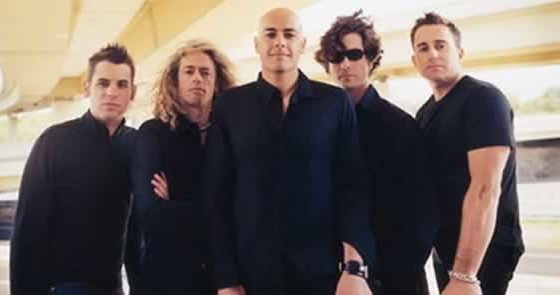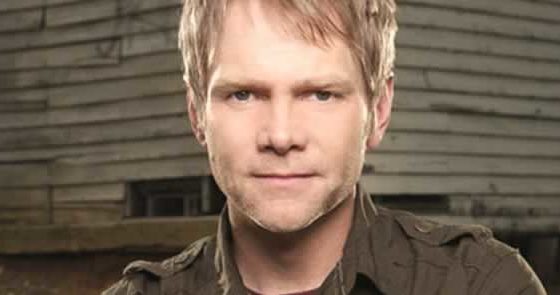On an ordinary weekday afternoon, the aged brick Lindslay Avenue Baptist Church in Nashville, Tenn. sits undisturbed, surrounded only by the crumbling pavement of the church grounds. Today, however, the church’s parking lot has been filled with cars, trailers and equipment. And inside, an unusual group of people mills about — lighting technicians, camera crews, extras, record label executives and actors.
Among them is Michael W. Smith.
Though he is known typically for his long-standing career as one of Christian music’s most established recording artists, today he is a movie star. The movie — his first full-length — is independent dramatic film “The Second Chance,” directed by industry associate Steve Taylor, who is a veteran Christian artist and founder of the now defunct Squint Entertainment.
Setting the stage: a study of details
Chronicling the backsliding of Ethan Jenkins (played by Smith), the musical son of a preacher of a WASP-y suburban super-church, “The Second Chance” follows Ethan as he is exiled to an urban church to work — as retribution — with streetwise black preacher Jake Sanders (played by Jeff Carr). The two begin to learn from one another, and, as Smith says, “Things start to change. Jake has big issues just like I have big issues and it all breaks down at the end. It’s pretty awesome!”
On this particular day, the segment being filmed on location will end up only five seconds long in the movie. Despite the scene’s brevity, it takes two hours to set the stage. On set, people converse in hushed tones, scurrying to adjust technical equipment and arrange church pews. Continuity staff verifies that Smith’s hair and clothing look exactly as they did and will in preceding and subsequent scenes. The atmosphere is calm, interaction with co-stars and crewmembers is friendly and Smith is casual and enjoying himself.
After the two-hour setup, Taylor gives Smith brief directorial suggestions. Two practice runs and two takes later, they are finished — with this scene, anyway. After five weeks of filming, the finished product will go through the editing process and the PG-rated movie will be released in theaters fall 2005.
Smith is passionate about acting
“The Second Chance” is not Smith’s first foray into acting. He has appeared in a few soap operas, one of the “Secret Adventure” children’s movies, has made some cameo appearances and did theater in high school. He also considered auditioning to play opposite Sandra Bullock in the movie “Hope Floats.” (He passed on the opportunity when he learned his character would be inappropriately involved with Bullock’s.) But when Taylor (who co-wrote the script for “The Second Chance” with Ben Pearson and Chip Arnold) approached Smith four years ago and asked him if he would be part of the project, Smith felt for the first time it was a story he could believe in.
Not surprisingly, the good friend of universal celebrities Bono (lead singer of U2) and President George W. Bush solicited acting advice and feedback from buddy James Caviezel, who recently starred as Jesus in Mel Gibson’s groundbreaking “The Passion of the Christ.” Smith also watched movies, worked with an acting coach for six months and rehearsed with co-stars to prepare. Once filming began, however, he found acting to be surprisingly easier than he anticipated.
“The stuff that was emotional ended up being the easiest for me to do,” he reveals. “I don’t know why, but my head, my heart and my emotions were into what was going on, script-wise. I didn’t have to think about my dog dying to pull off those scenes — they really did move me to tears.” In fact, Smith most enjoyed the intense scenes, which allowed him to “get into the moment.”
“Getting in the moment and then having Steve (Taylor) say, ?Cut!’ and ?That’s great, that’s great!’ and having him pat me on the shoulder or give me a hug was unbelievable,” Smith says. “Doing something for the very first time in my life and being absolutely congratulated to no end was unbelievable. I was thinking, ?Really?!’ I always thought I could do it, but still I was unsure.”
Long hours, no glamour
Smith was more sure that he did not enjoy waking up at 4:45 each morning in order to be on the set by 6 a.m. for hair and makeup. Nor was he particularly fond of the 12-hour work days punctuated with long periods of down time while crew members set up for the next scene. Visits from friends and family members kept the admittedly attention-deficient Smith excited about the project, though. It also prolonged his willingness to drive to work in the dark every day — even on his birthday.
“My kids snuck in [my trailer] and decorated it with pictures that said, ?We love you Dad!’ all over the place,” Smith remembers about his family’s visit on his 47th birthday, in October 2004. “The crew was blown away that my kids came down and did that. They all came in and got teary-eyed.”
Family and ministry is Smith’s gauge of true success
Really, Smith says, those family experiences mean much more to him than the movie or the success of his 18th album, Healing Rain. In fact, though he loves acting and feels Healing Rain is the best collection of songs he has ever created, he says he cares less about how his projects are received than most people would think. Not that he didn’t spend more time perfecting Healing Rain than any other project. Over the course of four-and-a-half years, Smith wrote almost 60 songs, recorded more than 30 and finally narrowed it down to his favorite 11 tracks for the CD. But with a new album, a movie in the works, an upcoming Christmas tour and all the pressures of keeping up with his five children and wife of 23 years, Smith has found it more important than ever to prioritize. Doing so has helped him refine his vision and direction for his career.
“I’m doing what I’m doing for the right reasons more so today,” he says. “I have a heart for the lost and I have a heart for impacting culture. It’s a real call of God. There’s more of an urgency — it’s too late to mess around.”
Compassion (www.compassion.com)Invited to visit Africa not only by Compassion International, but also by President Bush, Bono and various friends, Smith has finally put a trip to the continent on his calendar. He plans to go sometime in 2005 and wants to see the effect Compassion’s AIDS clinics have had on the communities there. Involvement with the ministry is a “no-brainer,” according to Smith, who says, “We have the capacity to help — why should we not?”
Rocketown (www.rocketown.com) A nonalcoholic youth club Smith founded in Nashville, Tenn., Rocketown provides nonthreatening fellowship and entertainment for kids. The goal is for club staff to get to know the kids one-on-one in order to positively influence them and ultimately share Christ with them. Smith has seen many kids, some of whom had never previously been exposed to the gospel message, come to know Christ through the relationships and Bible studies. Believing the club to be a successful way to encourage kids and keep tragedies like the Columbine shooting from happening in the future, he hopes to see more Rocketowns open in cities across the United States.
DATA (www.data.org) Smith has been often credited, even by U2’s Bono, for influencing President Bush to sign a $15 billion initiative to help Africa in eliminating poverty and disease (most specifically AIDS). He has chatted with the president about the matter and expressed the importance of the bill, but says more than anything, it was the church’s backing of the concept that made it so successful. “What the evangelical community did with getting involved and saying it (the initiative) was a great thing blew Bono away,” Smith says. “It shocked him and I think it changed him from a spiritual standpoint. The president is under a lot of pressure, but I think he thought it was a good thing, too.”
Copyright © 2005 Christian Music Planet, used with permission.
Read more at ChristianMusicPlanet.com! More Michael W. Smith











